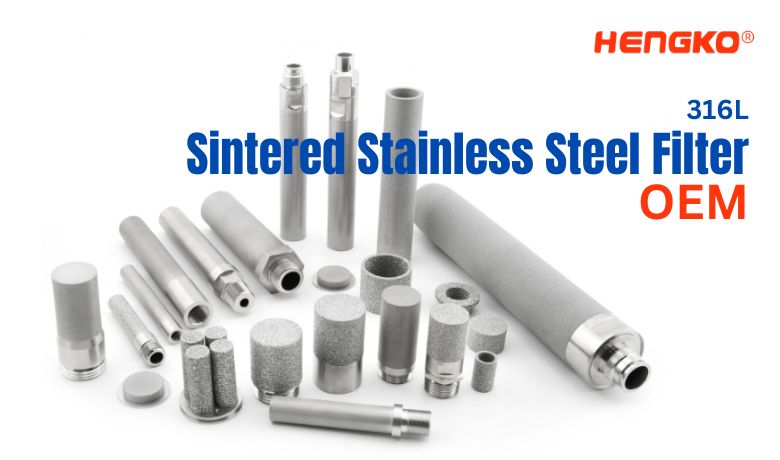-
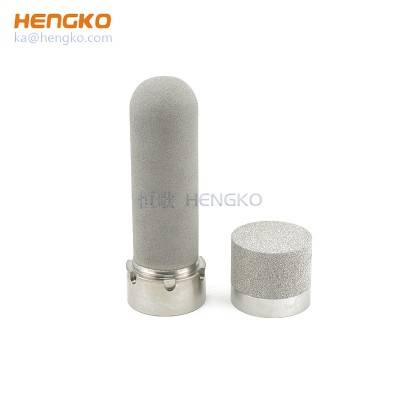
5 25 microns sintered stainless steel 316L porous powder metal precise air filter tube
HENGKO stainless steel filter tubes are made by sintering 316L powder material or multilayer stainless steel wire mesh at high temperatures. They have been...
View Detail -
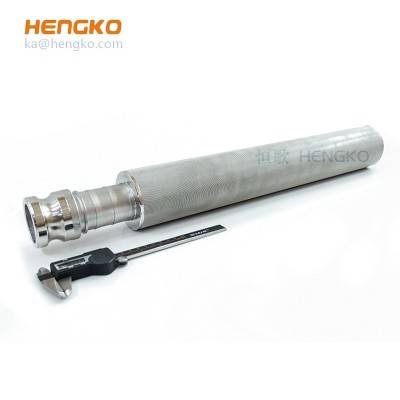
micron stainless steel sintered porous metal hydraulic filters tubes
HENGKO porous filter tubes can be hollow or blind and have a minimum wall thickness of 1 mm. They are made by isostatic compaction of powder in a flexible mo...
View Detail -
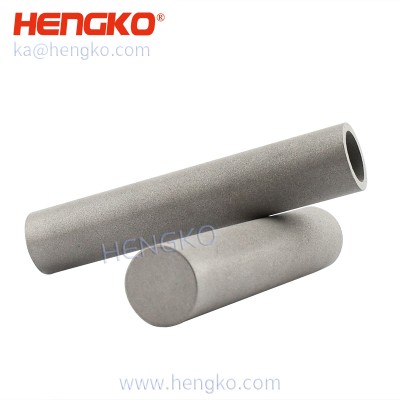
Microporous sintered metal powder stainless steel ss 304 316L filter cartridge
HENGKO stainless steel filter cartridges are recommended for steam service and well suited for liquid or gas applications including solvents, chemical interm...
View Detail -
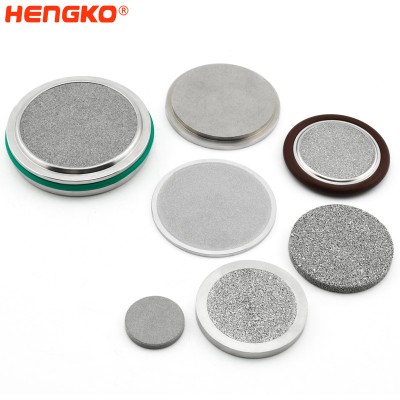
Sintered Stainless Steel Sanitary Tri Clamp Filter Disc with Viton O-Ring frit Gasket f...
At HENGKO® we try to help our customers build high-quality, safe, and precise operations for processing hemp. The best CBD extracts equipment that we’re rec...
View Detail -
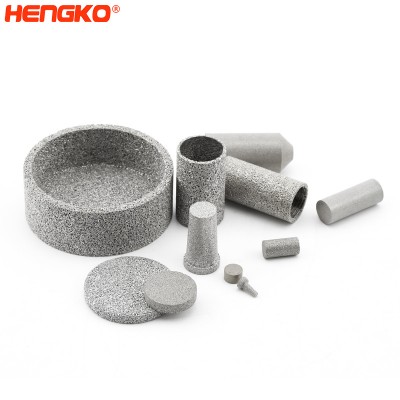
Custom sintered stainless steel 316L metal resists high temperature air filter cylinder...
Product Describe HENGKO stainless steel filter elements are made by sintering 316L powder material or multilayer stainless steel wire mesh in high temperatur...
View Detail -
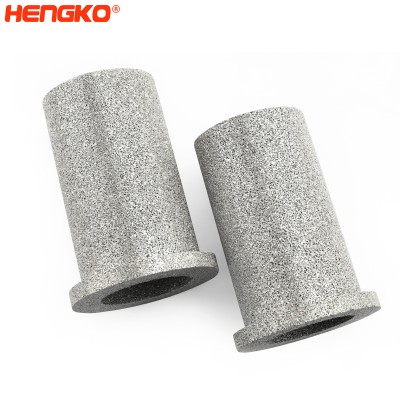
HENGKO sintered stainless steel 316L porous metal-air taper cup filter using wax in 3d ...
Product Describe HENGKO stainless steel filter elements are made by sintering 316L powder material or multilayer stainless steel wire mesh at high temperatur...
View Detail -
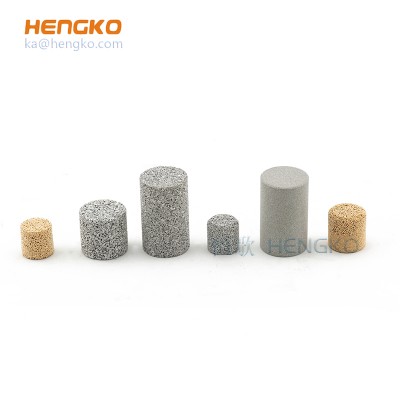
sintered metal stainless steel 316L bronze porous air filtration filter cylinder/candle
Introducing HENGKO's Candle Filters: Tailored Solutions for Your Industrial Filtration Needs! Product Features:- Optimal Filtration: Our candle filters are ...
View Detail -
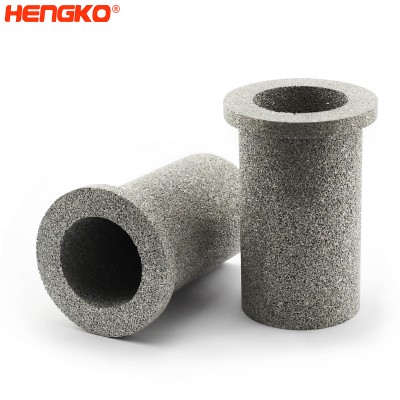
Sintered porous metal cups filter hydraulic pump shape, stainless steel metal 60-90 mic...
Product Description HENGKO Sintered filter candles and cartridges are cylindrical or cap-shaped filter elements sometimes called sintered filter cups, whic...
View Detail -
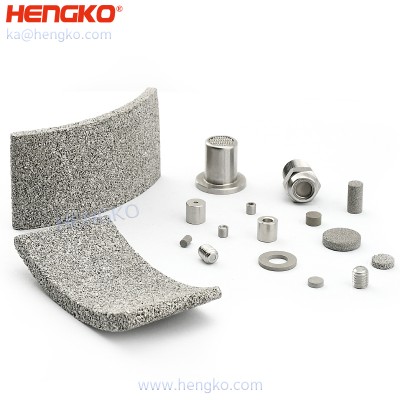
Micron replacement sintered stainless steel porous metal filter disc
Introducing HENGKO's High-Quality Stainless Steel Sintered Porous Metal Filters HENGKO is a leading manufacturer of stainless steel sintered porous metal f...
View Detail -
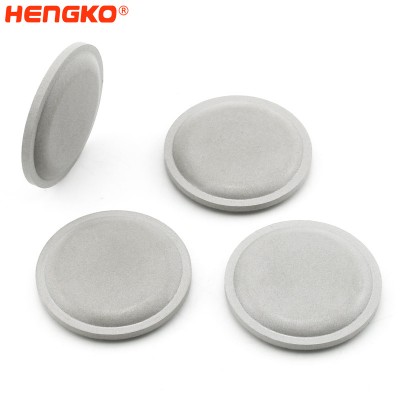
D6.1*H1.6 20um sintered porous metal stainless steel filter disc
Introducing HENGKO's Sintered Filter Disc: Unleash the Power of Precise Filtration! Are you looking for a sintered filter disc that offers exceptiona...
View Detail -
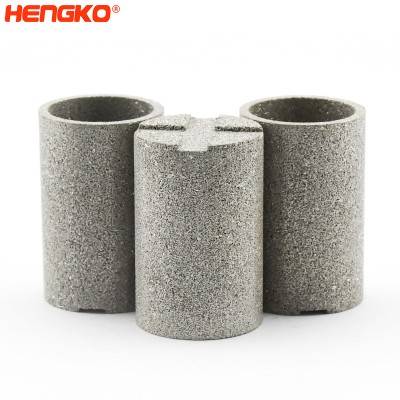
Special offer 30-45/50-60um sintered stainless steel metal cup filter with a cross on t...
HENGKO manufactures filter elements in a broad range of materials, sizes, and fittings so they can be easily specified with the characteristics and configura...
View Detail -
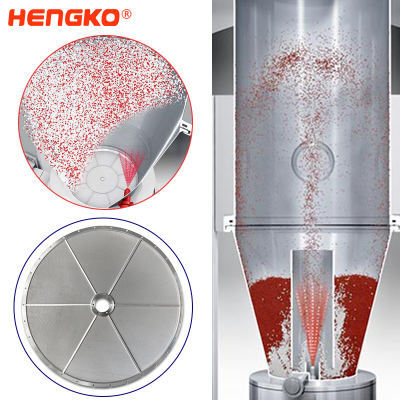
Multi-layer sintered stainless steel mesh plate fluidized bed equipment Distributor bot...
Stainless steel mesh plate for fluid bed Control of gas distribution, powdered material transmission, and fluidization operation has been widely used in indu...
View Detail -
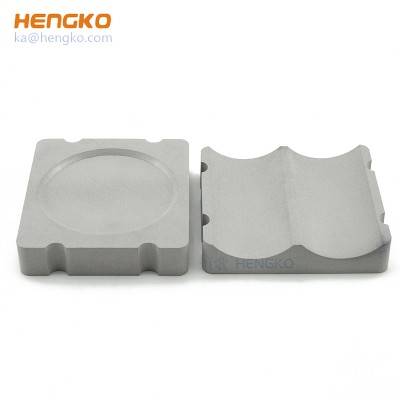
316 304 stainless steel plate – Sintered porous metal filter alien media
HENGKO stainless steel plate filters are made by sintering 316L powder material or multilayer stainless steel wire mesh at high temperatures. They have been ...
View Detail -
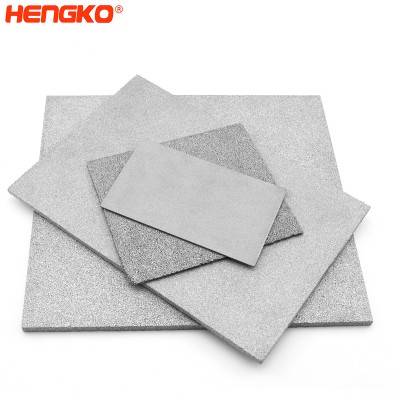
Corrosion resistant microns 316L stainless steel porous sintered filter metal sheets / ...
Product Describe HENGKO porous metal gas diffusion layers are the leading choice for high performance electrolyzer and fuel cell applications. The uniform po...
View Detail -
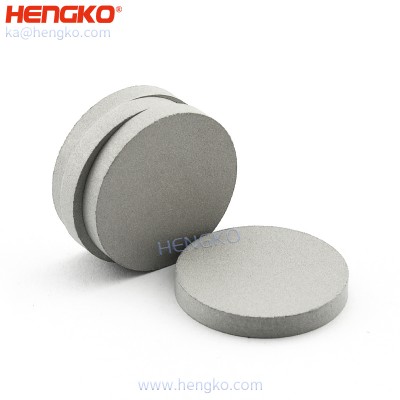
Sintered 0.2-120 micron 316L stainless steel metal powder filter disc
Product Describe HENGKO stainless steel filter disc is made by sintering 316L powder material or multilayer stainless steel wire mesh at high temperatures. T...
View Detail -
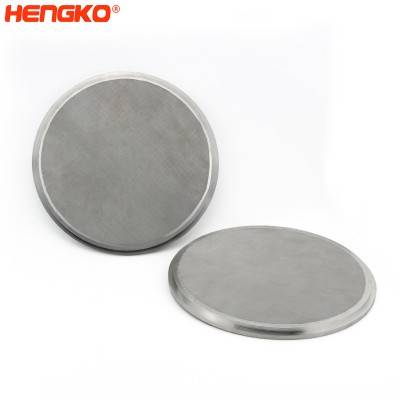
Easy Clean Micron Porous SUS Sintered 316L Stainless Steel Inline Metal Sheet Plate Rou...
The sintered porous metal sheets having high porosity were obtained from metallic powders by free spreading methods followed by sintering. The sintered struc...
View Detail -
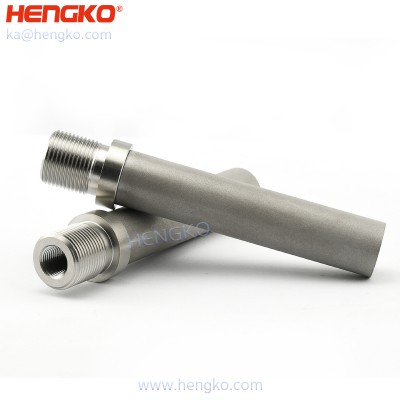
Custom sintered porous metal 2 5 10 20 25 microns stainless steel 304/316L filter tube ...
Stainless Steel Sintered Filter Cartridge is specifically designed to optimize particulate capture through its asymmetrical pore structure. This structure p...
View Detail -
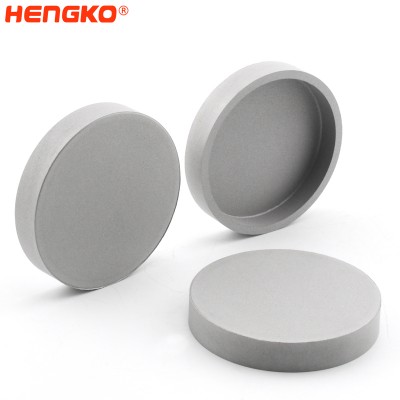
Professional manufacturer 5 20 microns porous metal sus 316l ss stainless steel sintere...
HENGKO Stainless Steel Filter Disc – High Performance Filtration Solution HENGKO’s stainless steel filter disc is the ultimate solution for all your ...
View Detail -
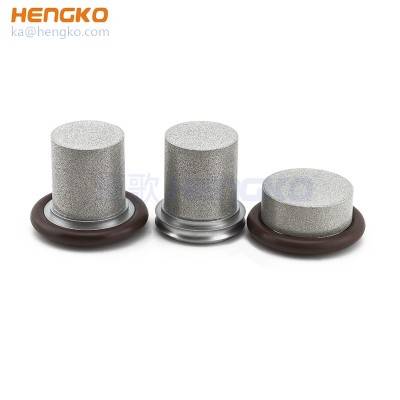
sintered metal stainless steel filters with centering ring used to build foreline vacuu...
Code Flange HKF10 NW10KF HKF16 NW16KF HKF20 NW20KF HKF25 NW25KF HKF40 NW40KF HKF50 NW50KF HENGKO centering ring assemblies with sintered ...
View Detail -
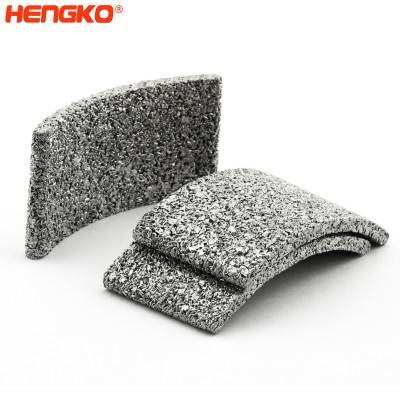
0.2 5 10 40 Micron porous sintered powder stainless steel 316L metal plate filter for c...
The porous materials sintered plates obtained in layers by free spreading, compaction, and sintering metallic powders are used as a semi-product to obtain fi...
View Detail
Why use Sintered Stainless Steel Filter ?
1. Superior Durability and Long Lifespan
*High-Temperature Resistance: Maintain structural integrity even in extreme heat.
*Corrosion Resistance: Withstand exposure to a wide range of corrosive chemicals for prolonged use.
*Mechanical Strength: Engineered to endure wear and tear, including high-pressure environments.
2. Advanced Filtration Precision
*Customizable Pore Size:
Tailored pore structures enable precise filtration for specific particles.
*High Efficiency:
Effectively eliminate contaminants, ensuring high product purity and process reliability.
3. Easy Maintenance and Reusability
*Effortless Cleaning: Designed for quick and efficient cleaning, reducing downtime and operational costs.
*Withstands High-Temperature Cleaning: Durable enough for rigorous cleaning procedures, ensuring thorough contaminant removal.
4. Exceptional Versatility
*Applicable Across Industries: Widely used in automotive, aerospace, pharmaceutical, food and beverage, and other sectors.
*Customizable Solutions: Can be tailored to fit unique application requirements, including size, shape, and pore structure.
5. Safety and Dependability
*Fire-Resistant:
Non-combustible material reduces fire risks in sensitive environments.
*Consistent Performance:
Delivers reliable results over extended periods, safeguarding product quality and safety.
Key Applications of Sintered Stainless Steel Filters
*Fluid Filtration:
Purifying liquids and gases by removing impurities.
*Air Filtration:
Eliminating dust, pollen, and airborne contaminants.
*Chemical Processing:
Ensuring efficient separation and purification of chemicals.
*Food and Beverage:
Filtering consumables to maintain purity and compliance.
*Automotive and Aerospace:
Enhancing performance by filtering lubricants and fuels.
Sintered Stainless Steel Filter vs Sintered Bronze Filter?
Sintered Stainless Steel Filter vs. Sintered Bronze Filter: Key Differences
When choosing between sintered stainless steel filters and sintered bronze filters, it’s important to understand their unique properties and suitability for various applications. Here's a detailed comparison:
1. Material Properties
Sintered stainless steel filters are made from stainless steel powders, commonly 316L or 304. They offer excellent resistance to acids, alkalis, and saline environments. With high mechanical strength, they are ideal for high-pressure and heavy-duty applications. Stainless steel filters perform well at extremely high temperatures and provide superior wear and tear resistance, making them durable for long-term use.
Sintered bronze filters are made from bronze or copper alloy powders. They offer moderate corrosion resistance, making them suitable for less aggressive environments. While less durable under high pressure, they perform adequately at moderate temperatures but may degrade at higher ranges. The softer material is more prone to wear in harsh conditions.
2. Filtration Performance
Sintered stainless steel filters offer highly uniform pore sizes, providing precise and consistent filtration. They are suitable for critical processes requiring high filtration efficiency.
Sintered bronze filters are adequate for less demanding filtration tasks. They are often used in applications where cost-effectiveness is more important than precision.
3. Cleanability and Maintenance
Sintered stainless steel filters can withstand ultrasonic cleaning, backflushing, and high-temperature sterilization. Their high reusability helps reduce long-term operational costs.
Sintered bronze filters have limited cleaning options due to their lower strength and temperature tolerance. They are generally less durable and may require more frequent replacements.
4. Cost
Sintered stainless steel filters have a higher initial cost due to their premium material and performance. However, their long lifespan and durability make them cost-effective over time.
Sintered bronze filters are more affordable initially, making them a good option for less demanding applications. However, frequent replacements may lead to higher long-term costs.
5. Applications
Sintered stainless steel filters are ideal for high-pressure systems, corrosive environments such as chemical processing or marine applications, high-temperature processes, and critical industrial sectors like pharmaceuticals and food and beverage.
Sintered bronze filters are suitable for low-pressure applications, moderate environments such as automotive or pneumatic systems, and budget-conscious filtration needs.
Summary: Choosing the Right Filter
Sintered stainless steel filters are best for applications requiring high durability, precision, resistance to extreme conditions, and long-term cost savings. Sintered bronze filters are ideal for cost-effective solutions in moderate operating conditions.
Here’s a detailed comparison of Sintered Stainless Steel Filters and Sintered Bronze Filters presented in a table format:
| Feature | Sintered Stainless Steel Filter | Sintered Bronze Filter |
|---|---|---|
| Material Composition | Stainless steel powders (e.g., 316L, 304) | Bronze or copper alloy powders |
| Corrosion Resistance | Excellent resistance to acids, alkalis, and saline environments | Moderate resistance, suitable for less aggressive environments |
| Mechanical Strength | High strength, suitable for high-pressure applications | Lower strength, less durable under high pressure |
| Temperature Resistance | Performs well at extremely high temperatures | Suitable for moderate temperatures; degrades at higher ranges |
| Durability | Superior wear and tear resistance; long lifespan | Softer material, more prone to wear |
| Filtration Precision | Highly uniform pore sizes; precise and consistent filtration | Adequate for general filtration tasks |
| Cleanability | Easy to clean; supports ultrasonic, backflushing, and high-temperature cleaning | Limited cleaning options; not ideal for rigorous processes |
| Reusability | High reusability; reduces long-term costs | Lower reusability; requires frequent replacements |
| Initial Cost | Higher due to premium material and performance | Lower; cost-effective for less demanding applications |
| Long-Term Cost | Cost-effective over time due to durability and reusability | Higher due to frequent replacements |
| Applications | High-pressure systems, corrosive environments, high-temperature processes, critical industrial sectors (pharmaceutical, food, etc.) | Low-pressure systems, moderate environments (automotive, pneumatic systems) |
| Common Industries | Chemical processing, marine, pharmaceuticals, food and beverage | Automotive, pneumatic systems, general filtration |
| Fire Resistance | Non-combustible; reduces fire hazards | Combustible under certain conditions |
What factors do i customize for your special Sintered Stainless Steel Filter ?
Factors to Customize for Your Special Sintered Stainless Steel Filter
Material Selection
You can choose from different stainless steel grades, such as 316L or 304, based on your requirements for corrosion resistance, temperature tolerance, and mechanical strength. Alternative alloys like Hastelloy can also be considered for specific chemical resistance needs.
Pore Size and Porosity
Pore size can be customized from microns to millimeters, depending on the particle size to be filtered. Porosity levels can be adjusted to achieve the desired balance between flow rate and filtration precision. Higher porosity offers better flow, while lower porosity enhances filtration accuracy.
Shape and Dimensions
Filters can be tailored to various shapes, including cylindrical, disc, cone, plate, or custom geometries, to fit your specific equipment or systems. Dimensions such as diameter, thickness, and length can also be adjusted to meet installation and operational needs.
Operating Environment Compatibility
Filters can be designed to withstand high-temperature environments and customized to handle different pressure levels, from low to high-pressure systems, ensuring compatibility with your operating conditions.
Connection and Mounting Design
Threaded connections or flanges can be added for easy installation, or filters can be designed for seamless integration through welding. Specialized connectors or housings can also be created for unique setups.
Filtration Efficiency
Single or multi-layer sintering options are available to enhance filtration precision and durability. Filters can also be designed for inside-out or outside-in filtration based on the application’s specific needs.
A smooth surface finish can be applied for applications requiring minimal adhesion, such as in food and beverage industries. Textured or coated surfaces can be used for added durability or enhanced chemical resistance.
Cleaning Compatibility
Filters can be designed to handle ultrasonic cleaning for reuse and resist chemical agents or sterilization processes to ensure long-term reliability and easy maintenance.
Application-Specific Features
For sparger applications, filters can be optimized with the right porosity for effective gas dispersion in liquids. Filters used for noise reduction can be designed with specific pore sizes and shapes to achieve efficient sound damping. Flow restrictors can be customized for precise flow control.
Certifications and Standards
Filters can be customized to meet industry-specific regulations, such as FDA, ISO, or ASME standards. Material certifications and batch traceability can also be provided for critical industries.
By providing detailed information about your application, operating conditions, and performance requirements, we can create a fully customized sintered stainless steel filter to suit your specific needs. Reach out to us for expert assistance!
Get Your Customized Sintered Stainless Steel Filter Today!
Ready to design the perfect sintered stainless steel filter for your application? Let us help you tailor every detail to meet
your exact needs, from material selection and pore size to shape, dimensions, and performance specifications.
Contact us today at ka@hengko.com to discuss your requirements and get started on your custom solution.
Our team of experts is here to provide the best OEM services to optimize your filtration, flow restriction, sparger,
and other industrial needs.
Email us now at ka@hengko.com and bring your unique filter solution to life!
